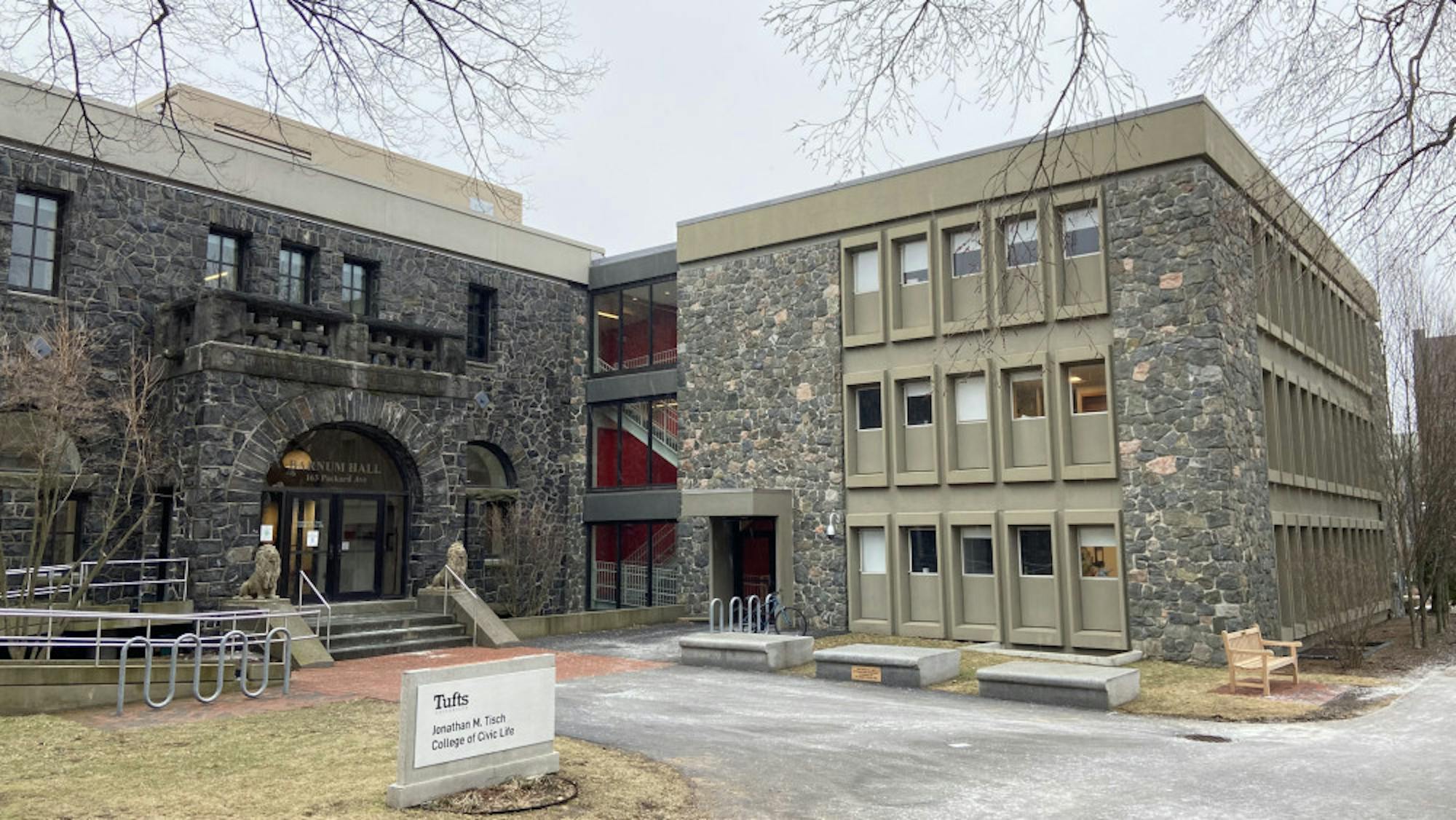The Jonathan M. Tisch College of Civic Life hosted a Civic Life Lunch on March 14 to discuss the possibilities of bipartisanship in Massachusetts and national politics. The virtual event, titled “The Massachusetts Model: Bipartisanship on Beacon Hill,” was co-sponsored by the Political Science Department, Tufts ACTION, Tufts CIVIC, the Tufts Democrats and the Tufts Republicans.
The event featured several speakers, each with unique experience working in Massachusetts government. The event’s moderator, Political Science Professor of the Practice Samuel Gebru, was joined by Massachusetts House of Representatives members Tackey Chan (D-Quincy) and Marcus Vaughn (R-Wrentham). Gebru was also joined by Katherine Holahan, former deputy chief of staff for legislative affairs for Governor Charlie Baker, and former Lieutenant Governor of Massachusetts Karyn Polito.
The theme of bipartisanship coincides with Tisch College’s focus on citizen activism for its spring speaker series.
“We wanted to explore the theme of bipartisanship on a state level because it’s critical to progress, it’s unique here in Massachusetts and because it recently experienced a major transition,” Tisch College Program Manager Jessica Byrnes wrote in an email to the Daily.
Conversation surrounding bipartisanship comes at an important time for Massachusetts given that Democrats now control all three branches of state government following the inauguration of Governor Maura Healey.
“What will this change in the balance of power mean for Massachusetts residents, including Tufts students?” Byrnes wrote. “Exploring the impact of this transition on local issues is important, as is understanding how it fits (or doesn’t fit) into an increasingly polarized national landscape.”
Gebru said participants would try to answer the overarching question of whether or not bipartisanship is possible, and look at how partisanship plays out in Massachusetts. He added that the state is home to the second oldest democratic deliberative assembly in the world and the oldest continuously surviving democratic governing document.
“There is no monolith in political parties,” Chan said. “And as a result, we always have disagreements among ourselves, relative to geography, constituencies, different philosophies.”
Holahan agreed with Chan that bipartisanship is about much more than just political parties.
“I think of it more as diversity, meaning diversity of perspectives and experiences and engagement,” Holahan said. “If we do not have engagement of diverse people of diverse experiences [and] diverse perspectives, then that function of bipartisanship just can’t fully exist.”
Vaughn noted some of the important moments in history where both political parties have come together to pass key legislation, citing the Affordable Care Act, the Wall Street Reform and Consumer Protection Act and the American Rescue Plan Act as examples.
“These efforts are facilitated by a number of factors, such as shared values on both sides, and mutual respect,” Vaughn said.
Gebru then asked Holahan about the dynamics of bipartisanship in the Massachusetts state government, given that she has previously worked in the executive branch for both Republican and Democratic administrations.
Despite all three branches of state government being controlled by Democrats, Holahan noted the importance of making sure Republicans have a seat at the table.
“Because of [the supermajority of Democrats], I see a lot of value in having another party as a balance because that does put more onus on those who are in charge to listen to diverse opinions,” she said.
Holahan reflected on the passage of the police certification bill, one of the times she witnessed the positive effects of bipartisanship during her time on Beacon Hill. At the time, there were many diverse opinions that all had to be taken into account, given that Democrats did not hold a veto-proof majority, Holahan said.
“What they started with was the bill first produced by the Black and Latino Caucus and Governor Baker,” she said. “What they ended with, it’s not going to be perfect, of course, but we’re also the first in the nation with this kind of program.”
“There are those key moments,” Holahan said. “They’re very few and far between in any state with a supermajority of one party, but I think those moments for me illustrate how important it is not just to have bipartisanship in theory, but in actual fact, in application.”
The speakers then discussed the intersection of their identity and their politics. Vaughn discussed his experience as a Black Republican in the Massachusetts state government.
“Black and brown people are not monolithic,” Vaughn said. “I’ve had a couple of instances as a Black male, Black Republican … [where] I think people lose sight of that we all come from different backgrounds and have different experiences that shaped who we are.”






